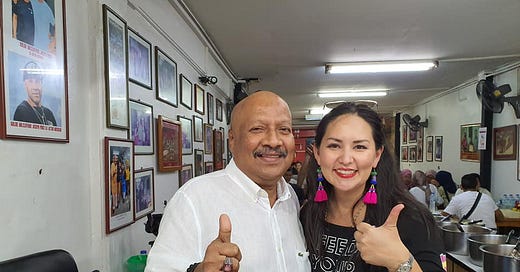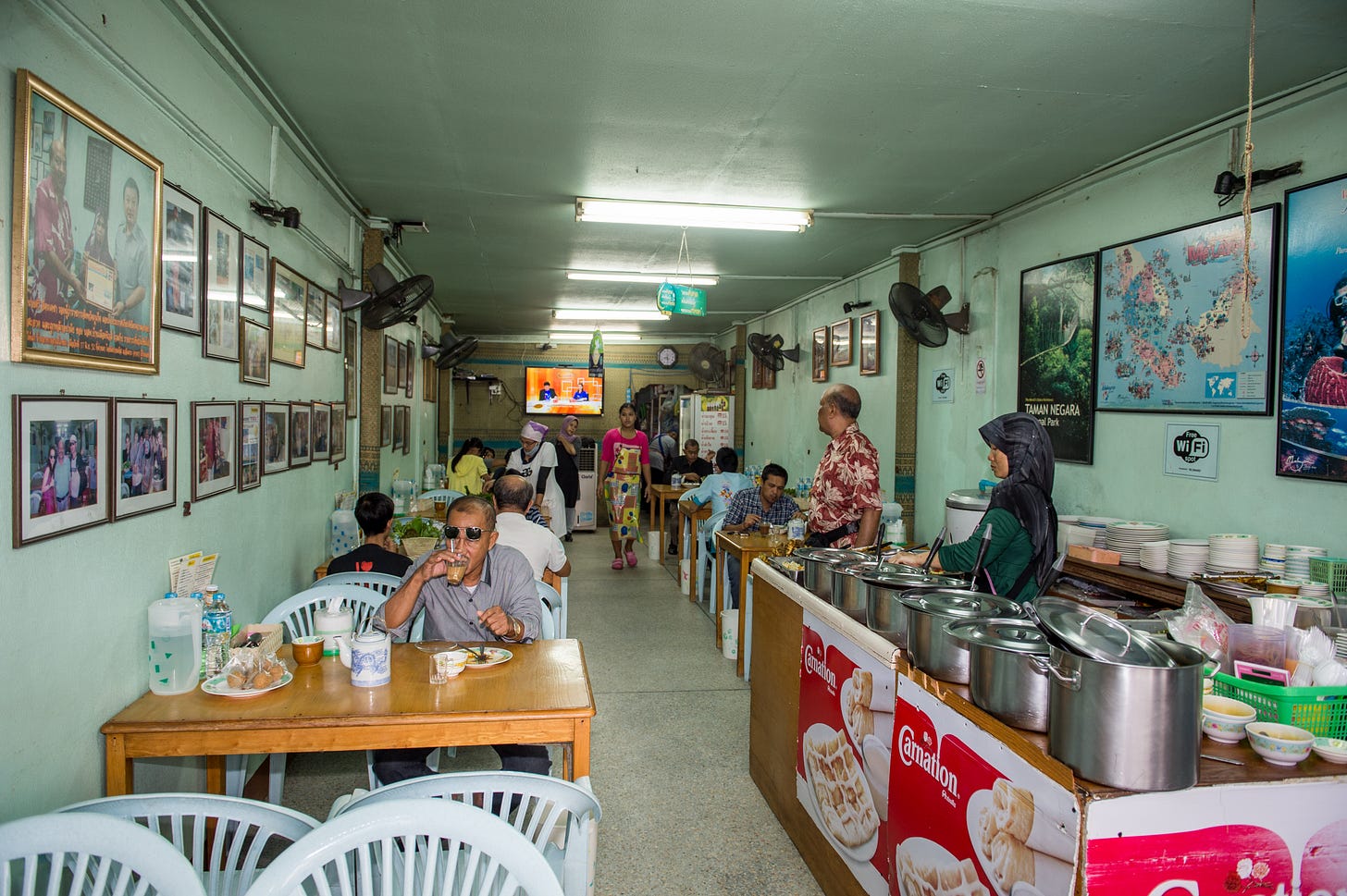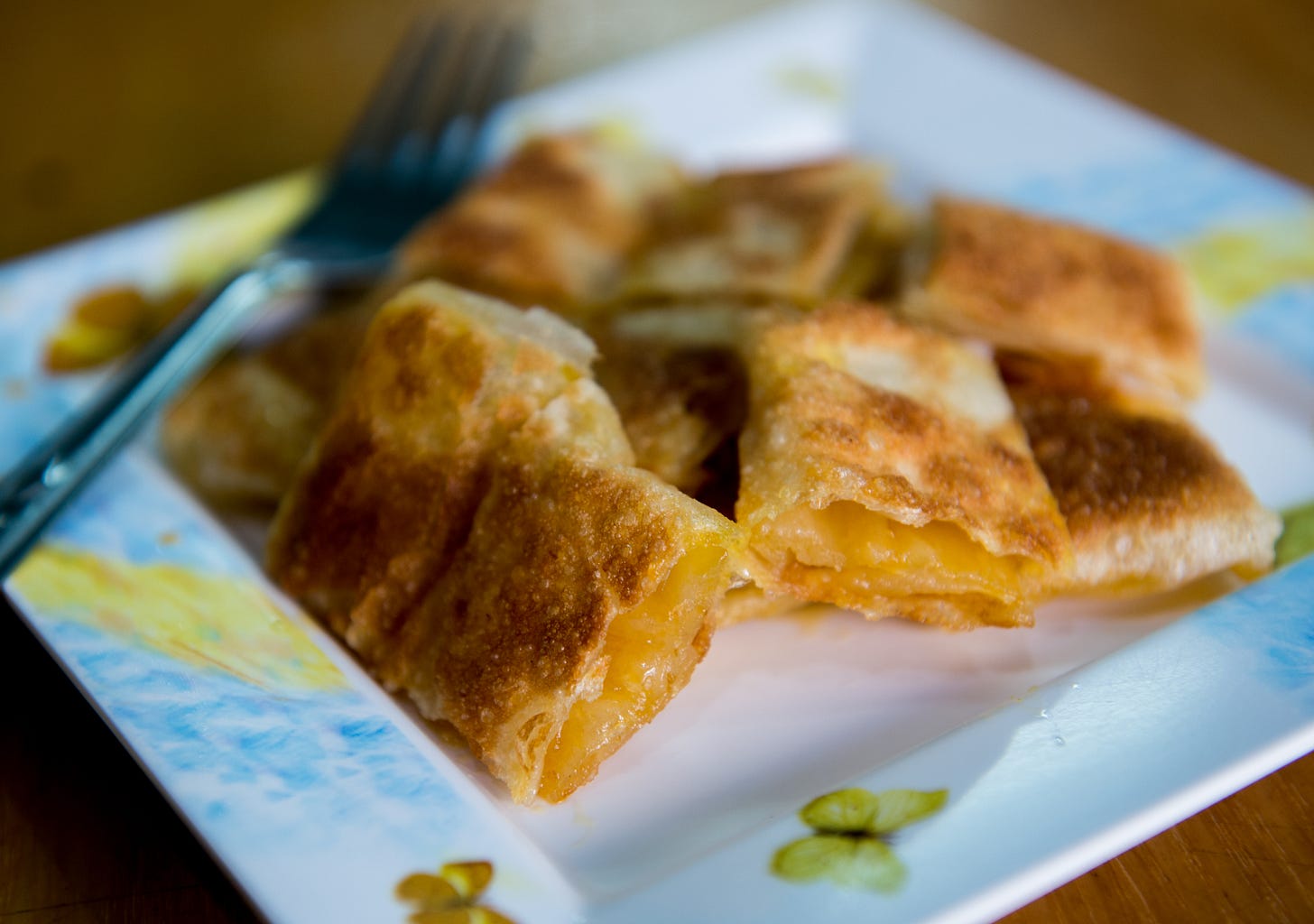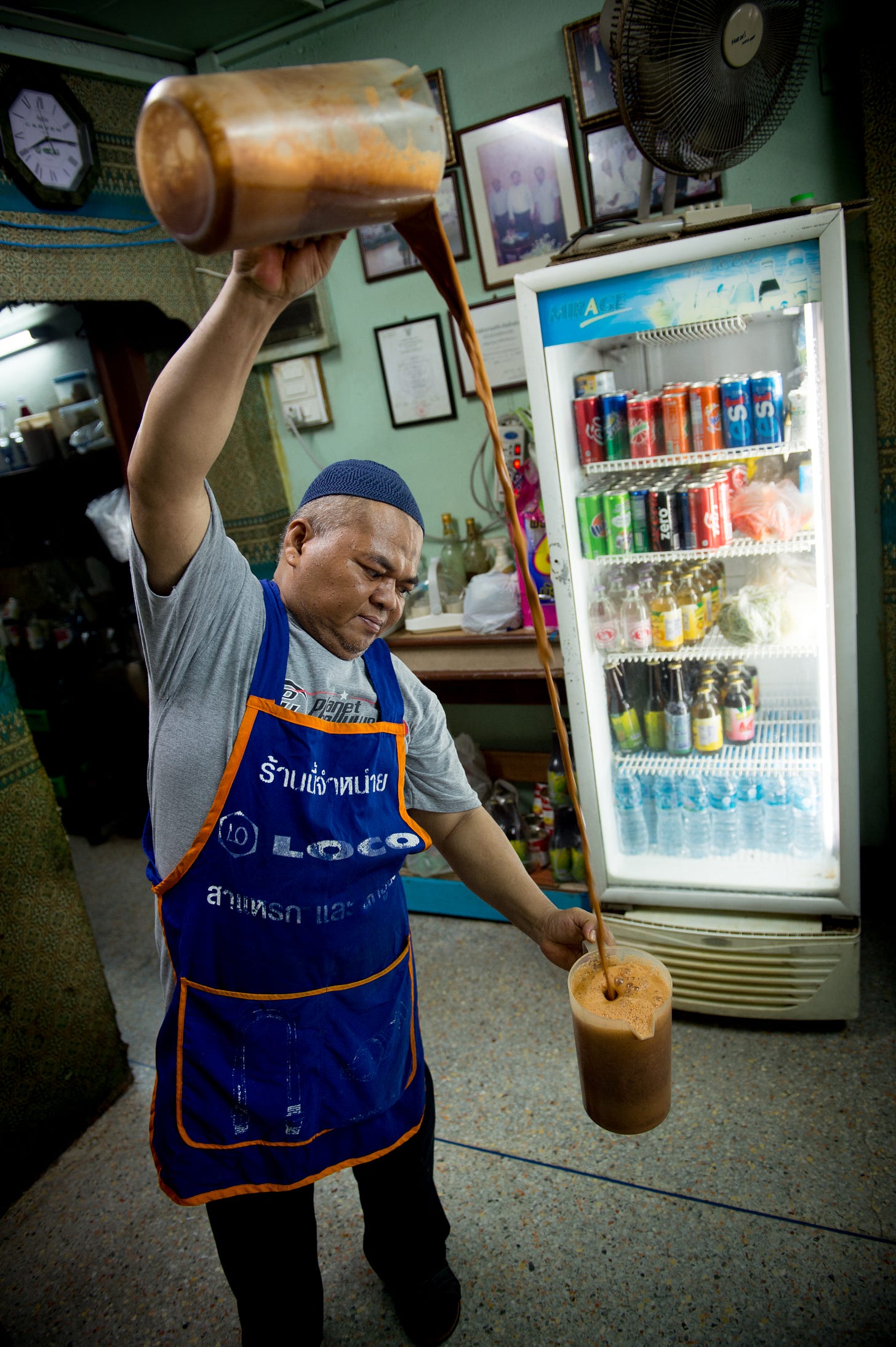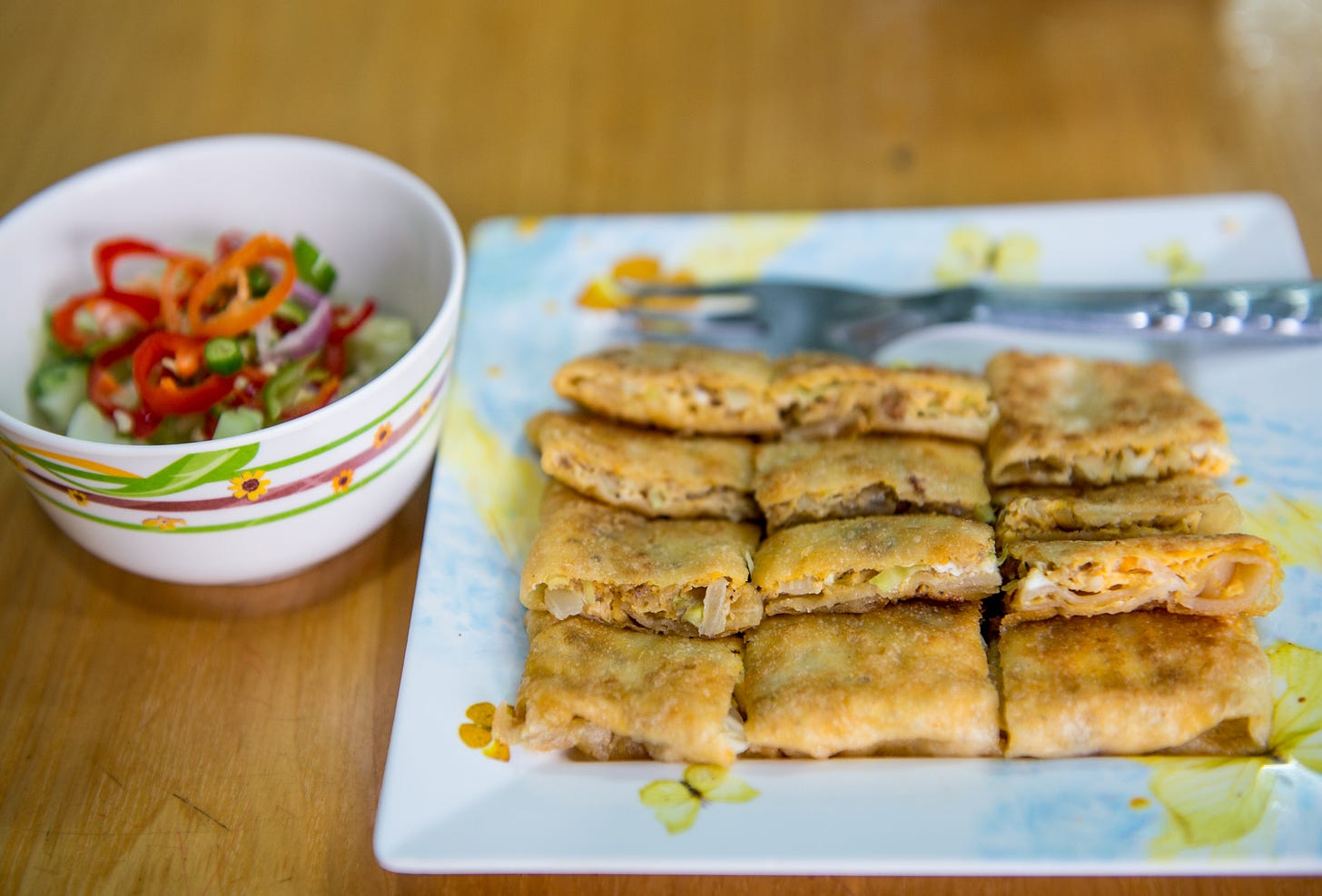The Roti King
There's no place like home for Aroon Dada, owner of Phuket's best roti shop in the heart of the island's Old Town, and purveyor of tasty treats like his famed roti bom
Manas “Aroon” Dada is up on his feet again. I'm trying to interview him about his famous roti shop – arguably the best in Phuket – but he's only able to sit down for 30 seconds at a time before running off to clean a table, take an order, or greet a familiar face. It makes for a stop-start conversation, but it also shows exactly why his business is so successful.
While I wait, I take a look around his restaurant. Occupying a 100 year-old shophouse on Thalang Road, one of the oldest streets in Phuket, the décor is simple – light green walls are filled with framed photos of Thai celebrities who have visited, while people sit on blue plastic stools pulled up close to simple wooden tables. Up front, closest to the street, is the hot plate where they make his famous roti.
“The secret to making good roti is to keep it crispy on the outside, and soft in the middle,” Aroon – wearing one of his signature Hawaiian-style shirts, this one a colourful white number dotted with red '50s Chevrolets and green palm trees – tells me, as the breakfast rush begins to die down. “It's also about having your own signature style. Every roti restaurant must have its own style.”
I ask him what dishes he is best known for. “Everyone loves the '1-1',” he says, “one roti with one fried egg on top, and people come just for my wife's chicken mataba.” The latter is roti filled with delicious massaman curried chicken and served with a sweet chilli vinegar sauce.
For special guests, Aroon sometimes makes an off-menu dish called roti bom – an extremely sweet concoction filled with butter and sugar and served with a side dip of condensed milk – which involves a delicate 20 minute process to make sure the outside is crunchy but not burnt. To go with their meal, most patrons order a hot or iced cha chuk – a sweet strained tea known as teh tarik in Malaysia (which is where Aroon sources his from), that is served with an extravagant flourish.
Aroon himself is of mixed blood. His father immigrated to Phuket from Mumbai in India, setting up a general store on the island selling everything from fabric to tools to kitchen supplies, later marrying Aroon’s mother, who was half Thai, half Malay. He recalls that when he was a child growing up there was a large mix of ethnicities found on Thalang Road – “Chinese, Sikhs, Muslims – we were all good neighbours, this was a tight community.”
Before opening up his restaurant more than two decades ago, Aroon previously worked in Jeddah, Saudi Arabia for the Thailand Department of Export Promotion, based in the city's Royal Thai Consulate-General. A fluent speaker of Arabic, English, Thai and Malay, as well as a Muslim, he was the ideal facilitator for improved trade between the two Kingdoms. However, home for Aroon was always a small shophouse on Thalang Road – the house in which he was born. After one vacation back in Phuket, he decided that it was time to come home, and he set about converting the house into a restaurant.
Twenty ago, Aroon says that Thalang Road was a quiet place: “No-one knew about Phuket Town or the Sino-Portuguese architecture back then.” Today it couldn't be any more different, as islanders and visitors alike flock to the Old Town, as it is now known, for the unique food and culture. In recent years, he's had many people come to his roti shop for a meal and ask him how they too can open up a business on the street.
He gives them the same answer he has to others – it's impossible to buy anything now as every house is full. As we talk, he points out the house across the street. “That one is owned by an Italian man and his wife, they paid 8 million baht to buy it, and probably spent a further 4 million on repairs and renovations. And see that place a few doors down?” He points to an immaculately restored shophouse property with white walls and gold trimmings. “They want 30 million.”
Of course, as someone running a restaurant in his own home, huge rental costs are not something Aroon needs to worry about. Indeed, he feels that his success can be attributed to his local roots, and family feel. “I think people come back again and again because we serve from the heart – this restaurant should feel like home. This is the most important.”
Photos by Jessi Cotterill

